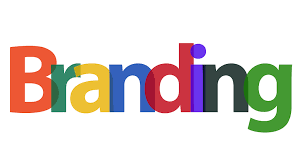In the dynamic world of entrepreneurship, networking is a crucial ingredient for success. For aspiring entrepreneurs eyeing the global stage, the Startup Visa Netherlands offers an enticing proposition through its startup visa—a gateway to vast networking opportunities in a vibrant startup ecosystem.
Why Consider the Dutch Startup Visa?
The Netherlands, with its strategic location, excellent infrastructure, and business-friendly environment, has emerged as a hotbed for startups. The Dutch startup visa is designed to attract innovative entrepreneurs from outside the European Union, offering them a chance to establish their businesses in this thriving landscape.
One of the standout features of the startup visa is the emphasis on collaboration with a recognized facilitator—a seasoned business mentor who helps startups grow and thrive. This mandatory collaboration not only provides valuable guidance but also opens doors to a network of industry contacts, potential investors, and fellow entrepreneurs.
Navigating the Dutch Startup Ecosystem
Upon securing a startup visa, entrepreneurs gain access to the Netherlands’ rich startup ecosystem. Cities like Amsterdam, Rotterdam, and Eindhoven are bustling with innovation hubs, co-working spaces, and incubators that foster collaboration and creativity.
These hubs often host networking events, pitch competitions, and industry-specific meetups, creating ample opportunities for entrepreneurs to connect with like-minded individuals. By actively participating in these events, entrepreneurs can build relationships that might lead to strategic partnerships, funding opportunities, and invaluable mentorship.
Leveraging Government Support and Resources
The Dutch government is keen on supporting startups, offering a range of incentives and resources. Programs like StartupDelta, now rebranded as Techleap.nl, aim to position the Netherlands as the premier startup hub in Europe. Through initiatives like these, entrepreneurs can access funding, market insights, and international expansion support.
Additionally, the Netherlands Foreign Investment Agency (NFIA) provides assistance to foreign entrepreneurs, helping them navigate the Dutch business landscape. This support extends to setting up operations, understanding legal requirements, and tapping into local networks.
Success Stories of Networking through the Startup Visa
Real-life success stories of entrepreneurs who have thrived under the Dutch startup visa program serve as inspiration. For instance, a tech startup founded by a non-EU entrepreneur leveraged the visa to establish a presence in Amsterdam. Through active networking, the founder secured funding from local investors and formed partnerships with established tech companies.
Another example is a sustainable fashion brand that utilized the Dutch startup visa to tap into the eco-conscious market in Rotterdam. By engaging with local sustainability groups and attending fashion industry events, the founder expanded their brand’s reach and gained valuable insights from industry experts.
Conclusion
The Dutch startup visa is not just a permit to establish a business; it’s a ticket to a network-rich environment where opportunities abound. By immersing themselves in the Dutch startup ecosystem, entrepreneurs can forge connections, access resources, and propel their ventures toward success.



